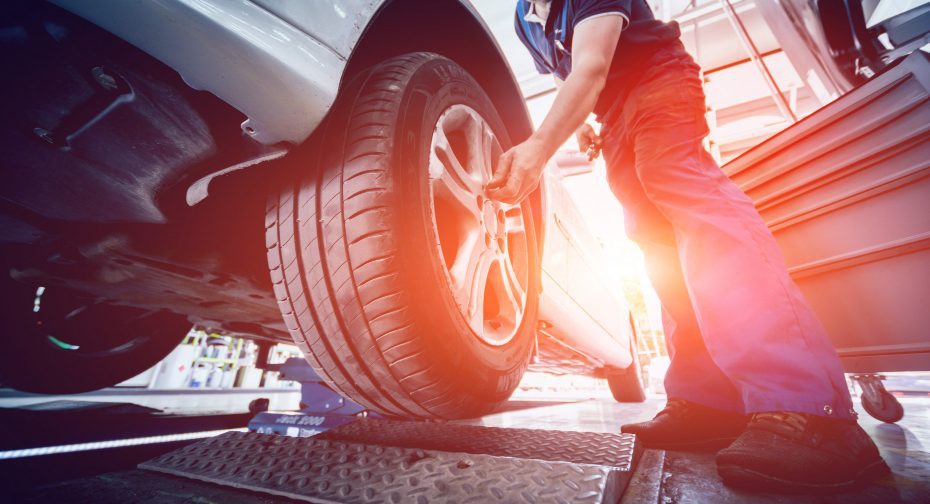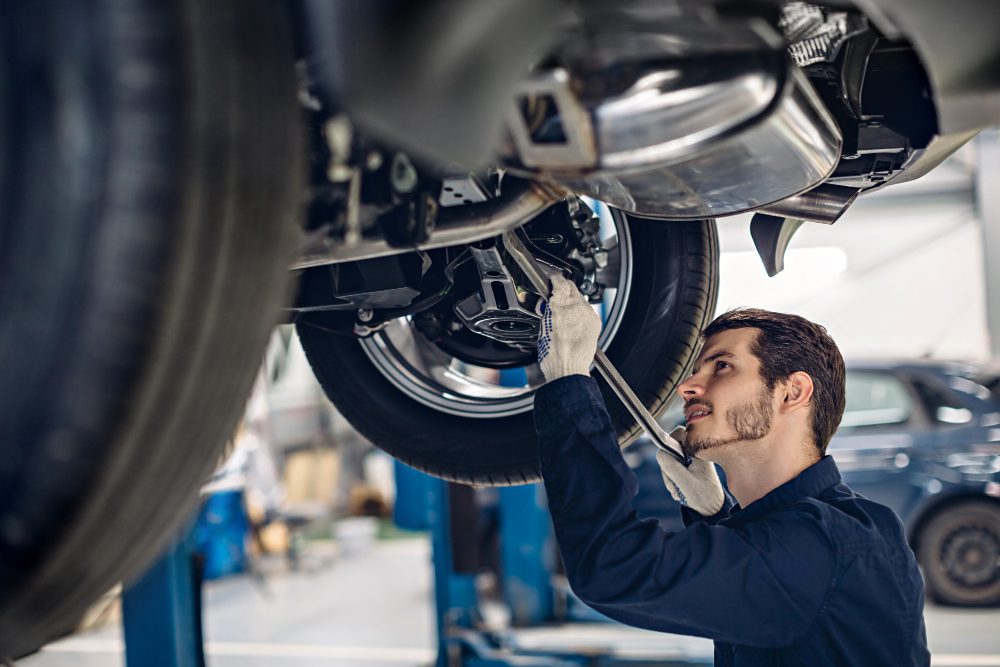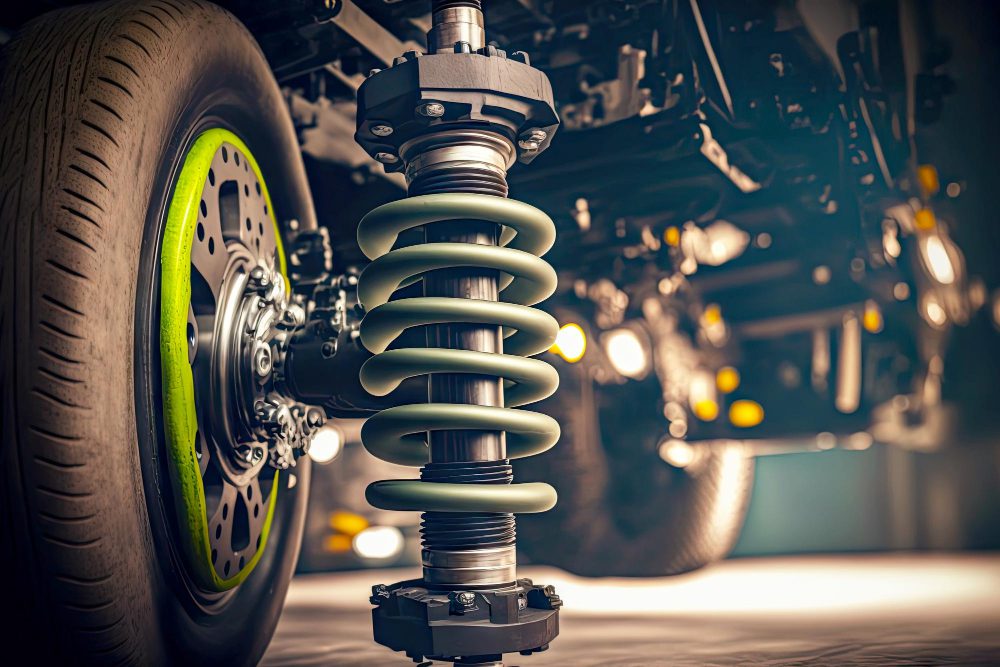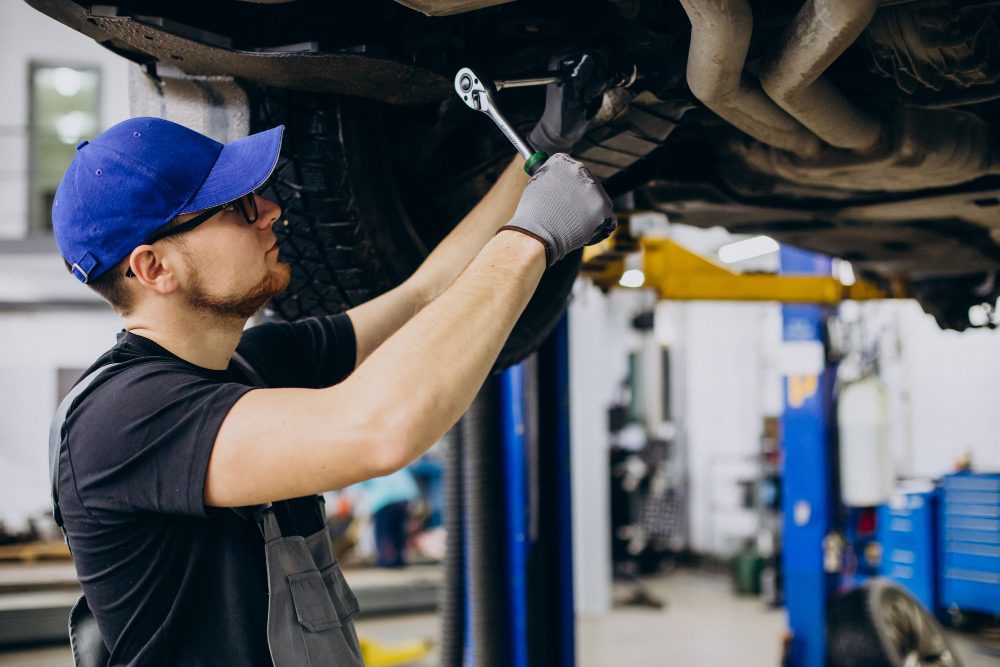What are signs of suspension problems?
The suspension system of a vehicle plays a crucial role in providing a smooth and comfortable ride, as well as ensuring proper handling and safety. However, like any other mechanical component, suspension systems can develop problems over time. It is important for drivers to be aware of the signs that may indicate suspension issues, as addressing them promptly can prevent further damage and costly repairs.
1. Uneven tire wear
One of the common signs of suspension problems is uneven tire wear. If you notice that your tires are wearing out more on one side than the other, it could be an indication of a suspension issue. Worn out or damaged suspension components can cause improper wheel alignment, leading to uneven tire wear patterns.
2. Excessive bouncing or dipping
A healthy suspension system should provide a stable and smooth ride. If you experience excessive bouncing or dipping when driving over bumps or uneven road surfaces, it may suggest that your suspension is not functioning properly. This could be due to worn-out shock absorbers or struts, which are responsible for absorbing the impact of bumps and maintaining stability.
3. Drifting or pulling
When a vehicle drifts or pulls to one side while driving on a straight road, it can indicate suspension problems. This could be caused by worn-out or damaged suspension components, such as control arms or tie rods, which affect the alignment and steering of the vehicle. If you find yourself constantly correcting the steering to maintain a straight path, it is essential to have your suspension checked.
4. Noise while turning or going over bumps
Unusual noises coming from the suspension system can be another sign of potential problems. If you hear clunking, knocking, or squeaking sounds when turning the steering wheel or driving over bumps, it could indicate worn-out or damaged suspension components. These noises are often caused by loose or worn-out bushings, ball joints, or strut mounts.
5. Decreased stability and handling
A well-functioning suspension system helps maintain stability and control while driving, especially during cornering or sudden maneuvers. If you notice that your vehicle feels less stable or exhibits poor handling, such as increased body roll or difficulty in maintaining control, it could be a sign of suspension issues. Worn-out or damaged suspension components can compromise the overall stability and performance of the vehicle.
It is important to note that these signs may not always indicate suspension problems, as they can also be caused by other issues related to tires, alignment, or steering components. Therefore, it is advisable to have a professional inspection and diagnosis to accurately identify the cause of the problem.
Remember, regular maintenance and timely repairs are crucial for keeping your suspension system in optimal condition, ensuring a safe and comfortable driving experience.
If you suspect any suspension problems based on the signs mentioned above, it is recommended to consult with a qualified mechanic or visit a reputable service center. They will be able to assess the condition of your suspension system and provide the necessary repairs or replacements.
Taking care of your suspension system not only improves your driving experience but also contributes to the overall longevity and safety of your vehicle.
How serious are suspension issues?
A well-functioning suspension system is crucial for the safety and performance of your vehicle. Suspension issues can vary in severity, but they should never be taken lightly. Ignoring suspension problems can lead to further damage and compromises the stability and handling of your car.
Common signs of suspension problems
- Uneven tire wear: If you notice that your tires are wearing unevenly, it could be a sign of suspension issues. This is often caused by misalignment or worn-out suspension components.
- Poor handling: Suspension problems can result in difficulty steering, excessive body roll, or a bumpy ride. These issues can negatively impact your ability to control the vehicle, particularly during turns or sudden maneuvers.
- Noise and vibrations: Unusual noises such as clunking, squeaking, or knocking sounds, as well as excessive vibrations, are indicators of potential suspension problems. These may be caused by worn-out or damaged suspension parts.
- Leakage: Fluid leakage near the shock absorbers or struts is a clear sign of malfunctioning suspension components. This can affect the overall performance of the suspension system and should be addressed promptly.
While some suspension issues may seem minor, it is important to address them as soon as possible. Neglecting to do so can lead to more severe consequences, including:
- Reduced braking efficiency: A compromised suspension system can impact the effectiveness of your brakes, as the weight distribution of the vehicle may be uneven. This can increase stopping distances and pose a serious safety risk.
- Loss of control: A weakened or faulty suspension system can result in unpredictable handling, especially in emergency situations. This can make it difficult to maintain control over the vehicle, increasing the chances of an accident.
- Damage to other components: Suspension issues can place additional stress on other parts of your vehicle, such as the tires, steering system, and frame. This can lead to more extensive damage and costly repairs if left unresolved.
Remember, a well-maintained suspension system plays a vital role in your safety and the overall performance of your vehicle.
If you suspect any suspension problems, it is recommended to have your vehicle inspected by a qualified mechanic. They will be able to diagnose the issue accurately and recommend the necessary repairs or replacements.
| Symptom | Possible Cause |
|---|---|
| Uneven tire wear | Misalignment or worn-out suspension components |
| Poor handling | Difficulty steering, excessive body roll, or a bumpy ride |
| Noise and vibrations | Worn-out or damaged suspension parts |
| Leakage | Malfunctioning suspension components |
How much is suspension repair in the UK?
The cost of suspension repair
When it comes to suspension repair, the cost can vary depending on several factors including the make and model of your vehicle, the specific components that need to be repaired or replaced, and where you take your car for servicing.
On average, the cost of suspension repair in the UK can range from £250 to £1000. This price includes both parts and labor. However, keep in mind that this is just an estimate and the actual cost may be higher or lower depending on your specific circumstances.
Factors affecting the cost
There are several factors that can affect the cost of suspension repair:
- The type of repairs needed: Different suspension components may require different levels of work and parts, which can affect the overall cost.
- The quality of parts used: Higher-quality parts may come with a higher price tag, but they can offer better performance and durability.
- Your location: Repair costs can vary from one region to another within the UK.
- The labor rates of the chosen repair shop: Labor rates can vary depending on the experience and reputation of the mechanic or the garage you choose.
Getting an accurate estimate
To get an accurate estimate for your suspension repair, it is best to take your vehicle to a reputable mechanic or garage. They will be able to assess the condition of your suspension system and provide you with an itemized breakdown of the estimated costs involved.
“It is important to address suspension problems promptly as neglecting them can lead to more severe damage and potentially compromise the safety of your vehicle.”
Taking care of your suspension
To minimize the risk of suspension problems, it is important to properly maintain your vehicle. This includes regular inspections, tire rotations, and wheel alignments.
Proper driving habits can also help prolong the lifespan of your suspension system. Avoid harsh driving over bumps, potholes, or uneven terrain, as this can put unnecessary stress on your suspension components.
Are suspension problems expensive?
Cost of Suspension Repairs
Suspension problems in your vehicle can be a cause for concern, and one question that often arises is whether these problems come with a hefty price tag. The cost of suspension repairs can vary depending on the specific issue and the make and model of your car.
Common Suspension Issues
Some common signs of suspension problems include a bumpy ride, uneven tire wear, drifting or pulling to one side, and a noticeable dip in the front or rear of your vehicle. It is important to address these issues promptly to prevent further damage and potential safety hazards.
Factors Influencing Cost
The cost of suspension repairs can be affected by several factors. These include the extent of the damage, the parts that need to be replaced, and the labor involved. An accurate diagnosis from a qualified mechanic will help determine the exact repairs needed and their associated costs.
Types of Suspension Components
Suspension systems are complex and consist of various components, such as shocks, struts, control arms, and bushings. The cost of replacing these parts can add up, especially if multiple components need attention. However, regular maintenance and timely repairs can help prevent major suspension problems and reduce costs in the long run.
Quotes from Experts
According to automotive experts, neglecting suspension issues can lead to more significant problems down the line. As
Car mechanic John Smith explains, “Addressing suspension problems early on can save you money and ensure a smoother and safer ride.”
Preventing Suspension Problems
While suspension problems may eventually occur due to wear and tear, there are measures you can take to prolong the lifespan of your suspension system. Regularly inspecting and maintaining your vehicle, including checking tire pressure and alignment, can help prevent costly suspension issues.
Can suspension problems be fixed?
Suspension problems in vehicles are a common issue that can affect the overall performance and safety of your car. If you notice signs of suspension problems, it is important to address them promptly. The good news is that many suspension problems can be fixed with proper maintenance and repairs.
Regular maintenance
Regular maintenance is key to preventing and fixing suspension problems. This includes checking and replacing worn-out suspension components such as shocks, struts, springs, and bushings. It is recommended to have your suspension system inspected by a qualified mechanic at least once a year, or more frequently if you frequently drive on rough roads or encounter potholes.
Common suspension problems
Some common suspension problems include:
- Uneven tire wear
- Pulling or drifting to one side while driving
- Noise or creaking sounds when going over bumps
- Poor handling or excessive bouncing
- Leaking fluid from shocks or struts
If you experience any of these issues, it is important to have your suspension system inspected and repaired by a professional mechanic.
Fixing suspension problems
The specific repairs needed to fix suspension problems will vary depending on the underlying issue. Some common repairs include:
- Replacing worn-out shocks or struts
- Replacing damaged springs or coilovers
- Repairing or replacing worn-out bushings
- Aligning the wheels to correct misalignment
- Tightening loose suspension components
It is important to consult with a skilled mechanic to accurately diagnose and fix suspension problems in your specific vehicle.
“Ignoring suspension problems can lead to further damage and may compromise the safety of your vehicle.”
Cost of suspension repairs
The cost of fixing suspension problems will vary depending on the extent of the damage and the specific repairs needed. It is recommended to get multiple quotes from reputable repair shops to compare prices and ensure you are getting a fair deal.
Conclusion
In summary, the cost of suspension repair in the UK can range from £250 to £1000, depending on various factors. It is best to consult a reliable mechanic or garage for an accurate estimate tailored to your specific needs. Taking care of your suspension system through regular maintenance and responsible driving can help prevent costly repairs in the future.
In summary, suspension problems can vary in cost depending on the specific issue and the make and model of your vehicle. It is important to address these problems promptly to prevent further damage and ensure a safe driving experience. Regular maintenance and timely repairs can help reduce the overall expenses associated with suspension problems. Remember to consult a qualified mechanic for an accurate diagnosis and cost estimation for any suspension repairs needed.
In conclusion, suspension problems can be fixed through regular maintenance and professional repairs. It is important to address these issues promptly to maintain the safety and performance of your vehicle. By taking proper care of your suspension system, you can extend its lifespan and enjoy a smoother and more comfortable ride.



